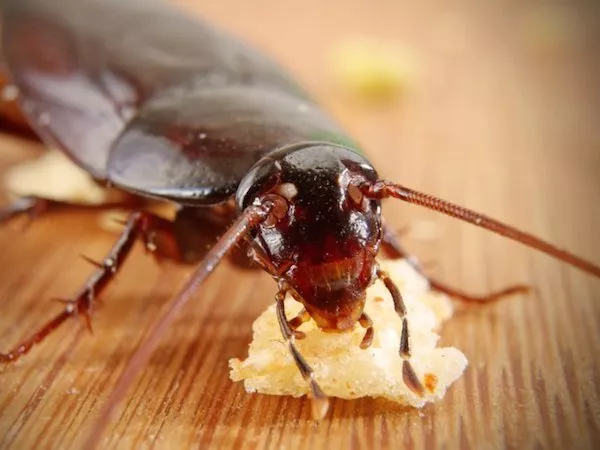Scientists: Eradication of cockroaches will soon become impossible
The resistance of cockroaches to insecticides is constantly increasing. According to the research published last month by Scientific Reports, researchers in more than 100 different apartments used common methods of cockroach extermination…
The resistance of cockroaches to insecticides is constantly increasing. According to a study published last month by Scientific Reports, researchers simulated common cockroach extermination methods in more than 100 different apartments and finally found that almost none of those methods could completely destroy German cockroaches.
In fact, according to Michael Shuarf, the senior researcher of this project and a professor of Purdue University’s Department of Entomology, cockroaches are becoming resistant to all kinds of insecticides, and it is predicted that one day it will be impossible to control the population of these insects.
In some cases, the population of cockroaches increases after the use of insecticides
Cockroaches (apart from being unpleasant insects) can cause allergens and aggravate asthma in people. These insects sometimes carry dangerous bacteria such as salmonella or Escherichia coli. On the other hand, when you use insecticides to kill these creatures and there is no effect on them, you continue to use these chemicals to kill cockroaches, which can have adverse effects on your health.
But the real danger with cockroaches is their multidimensional resistance; In other words, besides being able to survive against insecticides, these organisms are able to continue growing and reproducing. In recent researches, it has been determined that this trait is being cultivated in cockroaches, and interestingly, the new cockroaches examined in this research showed resistance to insecticides that they had not encountered before.
In their study, Purdue researchers simulated common strategies for dealing with cockroaches in residential apartments and examined three different methods over a six-month period. In the end, they announced that, contrary to their expectations, none of the three mentioned methods completely destroyed the cockroaches.
The resistance of the next generation of cockroaches against the insecticide is four to six times higher than the previous generation
Scientists believe that cockroaches whose bodies have become resistant to a type of pesticide have transferred this resistance to their pupae, and gradually their population has become resistant to various methods of dealing with cockroaches.
Shuaroff said: It is predicted that in just one generation, the resistance of cockroaches will increase four to six times, which we never expected.
The resistance of domestic cockroaches to insecticides is not a problem that has happened recently and the first reports about this date back to the 1950s, but the introduction of the concept of insecticide-resistant super cockroaches is a completely new category.
Shuaroff advises those facing this problem in their homes to use a combination of approaches, including the use of insecticides, improved sanitation, and structural modification of buildings.
One of the reasons why cockroaches are so resilient is their ability to adapt to different environments and food sources. They can survive in extreme temperatures, high radiation levels, and even without oxygen for some time. They can also feed on almost anything, including paper, glue, soap, and hair. This makes them very hard to eradicate, as they can find shelter and sustenance in almost any place.
Another reason why cockroaches are so resistant to insecticides is their genetic diversity and rapid reproduction. Cockroaches have a large number of chromosomes, which allows them to have more variations in their genes. This means that they can evolve faster and develop new traits that help them survive. They can also reproduce quickly, producing hundreds of offspring in a short time. This increases the chances of passing on the resistance genes to the next generation.
Some researchers have suggested that the only way to effectively control cockroaches is to use a combination of biological, chemical, and physical methods. Biological methods involve using natural enemies of cockroaches, such as parasitic wasps, fungi, or bacteria, to infect and kill them. Chemical methods involve using newer and more effective insecticides, such as insect growth regulators, which disrupt the development and reproduction of cockroaches. Physical methods involve using traps, baits, vacuum cleaners, or heat treatments, to capture and eliminate cockroaches.
However, these methods are not without challenges and limitations. Biological methods may pose risks to human health and the environment, as the natural enemies may also affect other organisms or become invasive. Chemical methods may have negative effects on human health and the environment, as the insecticides may contaminate the air, water, or soil, or cause allergic reactions or poisoning. Physical methods may be costly, time-consuming, or impractical, as they require frequent monitoring and maintenance, or may not reach all the hiding places of cockroaches.
Therefore, the best way to prevent and reduce the problem of cockroach infestation is to prevent them from entering and establishing in the first place. This can be done by improving the hygiene and sanitation of the premises, sealing the cracks and gaps where cockroaches can enter, removing the sources of food and water where cockroaches can feed, and disposing of the garbage and clutter where cockroaches can breed. By doing these simple steps, one can make the environment less favorable and attractive for cockroaches, and reduce the need for using insecticides or other methods.
Cockroaches are among the most ancient and successful animals on Earth, and they have proven to be very difficult to control. However, by understanding their biology, behavior, and resistance mechanisms, and by applying a combination of methods and strategies, humans may be able to manage and minimize the impact of these pests on their health and well-being.
if you liked our article also read this article about Secrets About Bed Bugs That You Should Know

